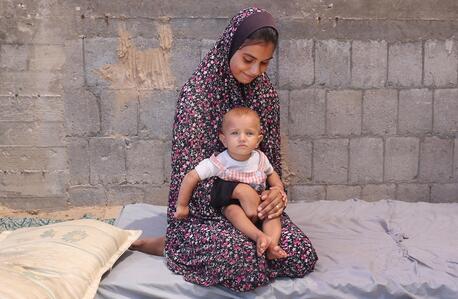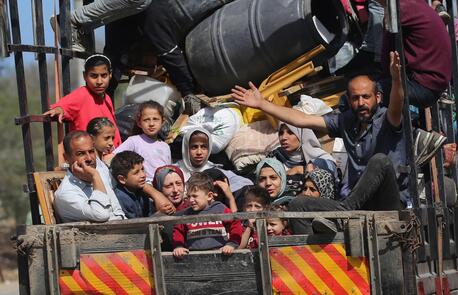
Situation Dire for Children Under Attack in Gaza
Parents are struggling to keep their children safe in the Gaza Strip as the bombardment continues, straining systems to the limit. UNICEF is working with partners to provide urgent aid. Much more help is needed.
Health services are on the verge of collapse
After more than seven months of escalating bombardment across the Gaza Strip, Palestinian children are facing trauma on top of trauma.
Homes, hospitals and infrastructure lie in ruins. On May 28, a World Health Organization official warned that a further assault by Israeli forces could spell the end for Rafah's only remaining hospital.
"If the incursion would continue, we would lose the last hospital in Rafah," Richard Peeperkorn, WHO Representative for Gaza and the West Bank, told Reuters on the sidelines of the World Health Assembly in Geneva.
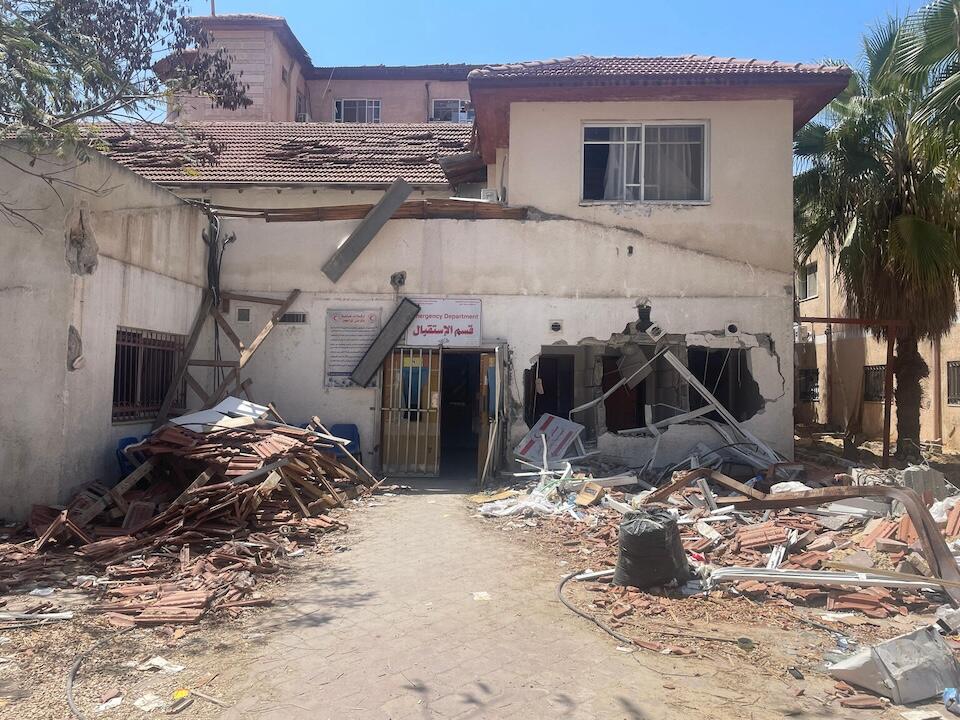
Essential medical supplies are rapidly running out
From the Oct. 7, 2023 attacks on Israel and subsequent declaration of war through April 20, 2024, 442 attacks on health care in Gaza were recorded, affecting 100 health facilities and 106 ambulances, according to reporting by WHO. Many hospitals have been evacuated; in many places, health services have already been halted, with a major risk that additional services could cease operation.
Essential medical supplies are rapidly running out. Since the closure of the Rafah border crossing on May 7, UNICEF’s ability to deliver humanitarian aid has been seriously hampered given challenges related to ongoing population movements, lack of access and overall security, as well as the lack of entry of assistance.
With more people being displaced to the west coast of Rafah, UNICEF has enabled health providers to set up a new field hospital in four tents and a rub hall. The field hospital will serve an estimated 100,000 people.
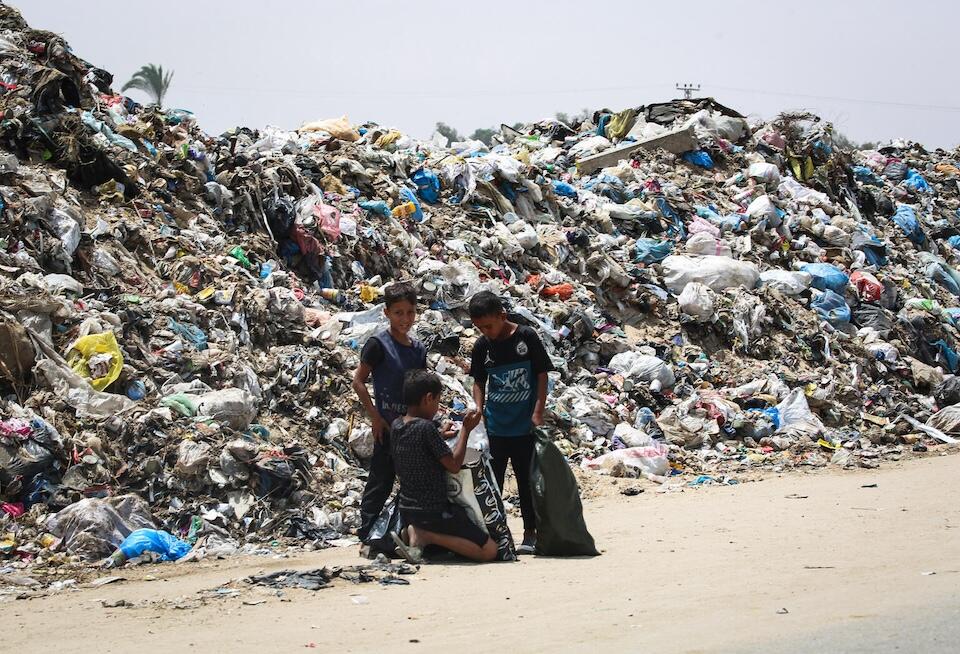
Overcrowding, waste and sewage accumulation and increasing temperatures pose a severe risk to children's health
As of May 22, more than 800,000 people have been displaced from Rafah; about 100,000 were reported displaced in the north, according to UN estimates.
Approximately 78 percent of the Gaza Strip has been placed under evacuation orders, with nowhere safe for children and their families to go.
Constant fear and harsh living conditions in makeshift tents are taking a grave toll on children's physical and mental health. Inadequate access to hygiene, sanitation and safe drinking water leaves young children particularly vulnerable to disease outbreaks and severe acute malnutrition.
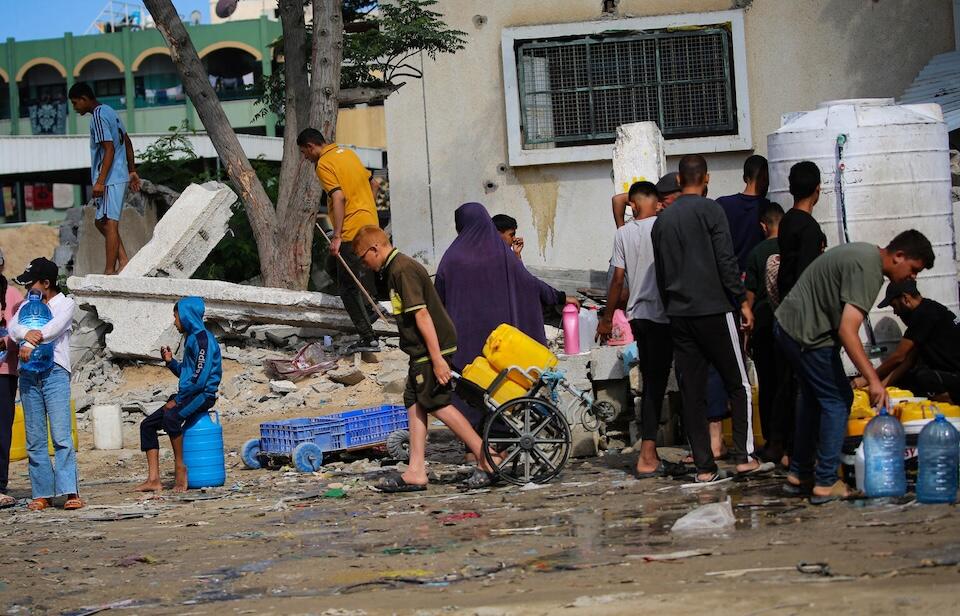
Silent streets where children used to play, bombed school buildings
In Khan Younis, about six miles from Rafah, bombing has been so extensive the city looked unrecognizable to a returning UNICEF staff member.
"The first time I walked back into Khan Younis, my heart broke," she says in the video below. "What used to be a lively, happy place was now ruined. The streets where we once shared so many smiles and stories were silent. Everything laid to waste. It is so shocking, how a place so familiar can suddenly feel like a place I have never been."
A total of 483 schools in the Gaza Strip — 86 percent of all schools — have sustained damage since October 2023. More than 72 percent of school buildings will either need full reconstruction or major rehabilitation work to be functional again.
Every child has the right to a safe and healthy childhood
On May 27, after Israeli air strikes hit Palestinians sheltering in a tent camp for the displaced in Rafah, UNICEF Executive Director Catherine Russell posted on social media: "Images of burned children & families emerging from bombed tents in Rafah shocks us all. The reported killing of children sheltering in makeshift tents is unconscionable. For over seven months, we've witnessed this tragedy unfold, resulting in thousands of children killed or injured.
"There must be an immediate ceasefire, the unconditional release of all hostages, and an end to the senseless killing of children."
UNICEF is on the ground in the Gaza Strip, working with partners to help children and their families. Your contribution will make a difference. Please donate.
HOW TO HELP
There are many ways to make a difference
War, famine, poverty, natural disasters — threats to the world's children keep coming. But UNICEF won't stop working to keep children healthy and safe.
UNICEF works in over 190 countries and territories — more places than any other children's organization. UNICEF has the world's largest humanitarian warehouse and, when disaster strikes, can get supplies almost anywhere within 72 hours. Constantly innovating, always advocating for a better world for children, UNICEF works to ensure that every child can grow up healthy, educated, protected and respected.
Would you like to help give all children the opportunity to reach their full potential? There are many ways to get involved.





